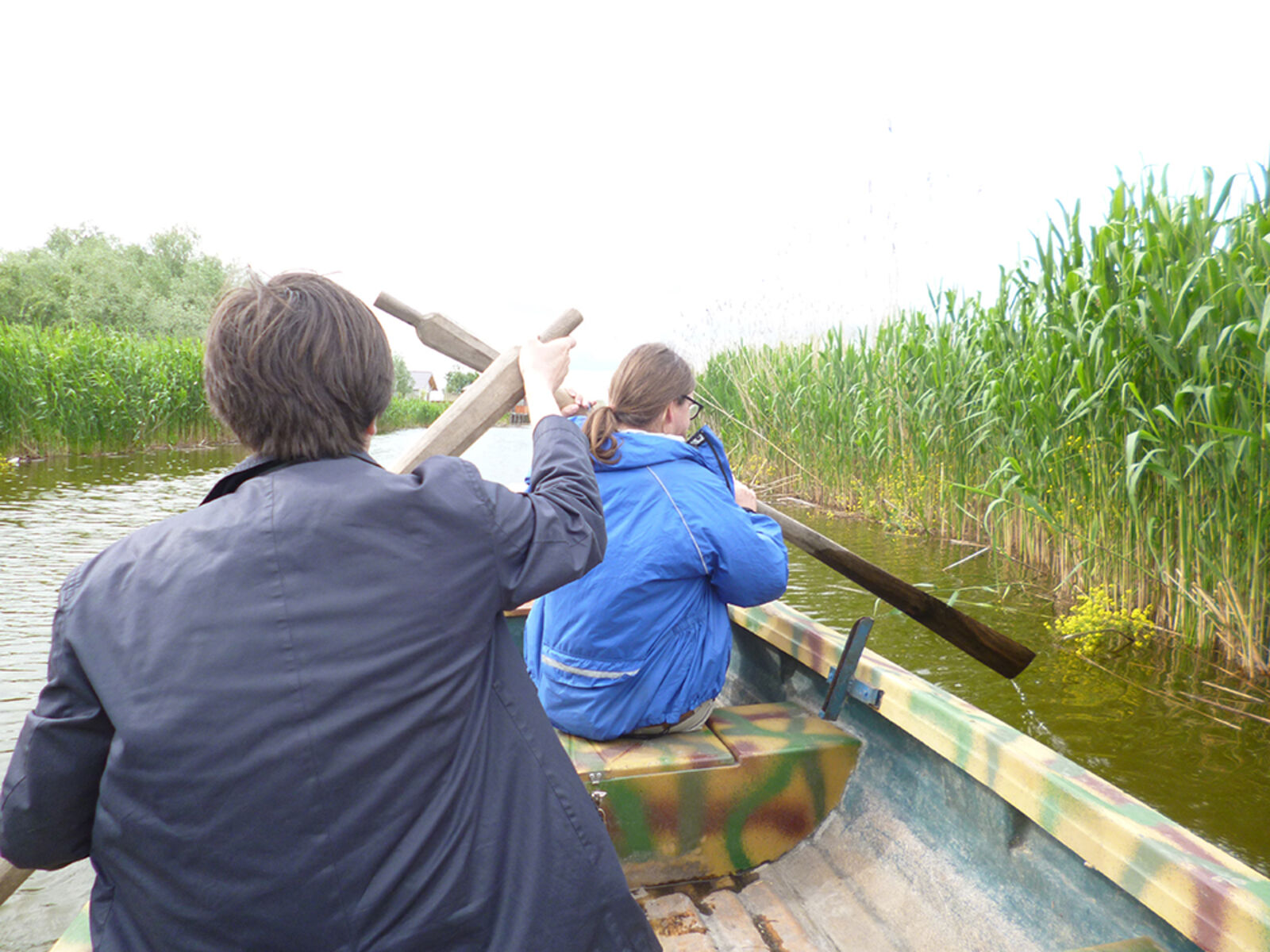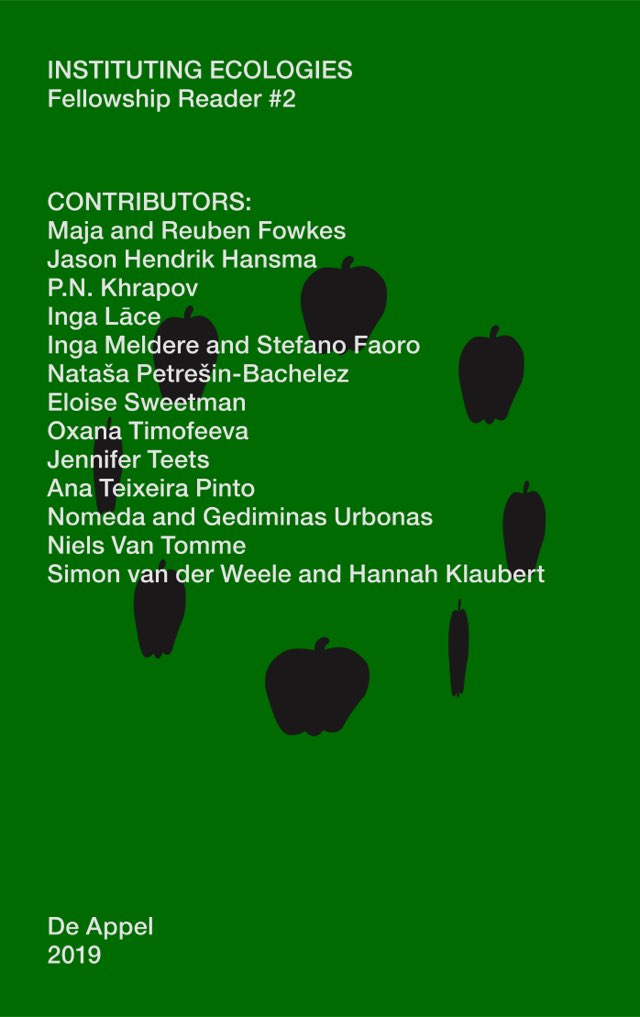Instituting Ecologies. Artistic and curatorial case studies
de Appel, Prins Hendrikkade 142, Amsterdam

An afternoon with talks by researchers and curators Maja and Reuben Fowkes and artists, educators and researchers Nomeda and Gediminas Urbonas.
Questions that have driven the organization of this afternoon are among others - how contemporary art and its practitioners can contribute to the current debates around the growth-oriented economy and its impact on the natural world, raising social inequality and climate change? How the ecological awareness can also be practiced through the contemporary art and interdisciplinary projects and can it have an impact? How the inherently man-made institutions could possibly be reimagined including the rights of nature within their operation? Are the divisions of nature and culture enforced through modernity still relevant for discussion within the current moment? Or is the preoccupation with ecology being another metaphor within our contemporary discourse? We will examine two case studies of artistic and curatorial practices that engage with the questions in producing integral ecological consciousness.
Maja and Reuben Fowkes will present issues that arise from their recent project and publication River Ecologies. Challenging anthropocentric conventions that seek to harness the river for economic, cultural and political purposes, River Ecologies placed the complex ecological materiality of the Danube at the centre of artistic and scholarly attention. Drawing on the insights of artists, scientists, anthropologists, writers and environmental historians, brought together in the experiential setting of the River School, this collective inquiry journeyed to sites of urban and natural wilderness to explore issues of reciprocity, resilience, non-human agency and interspecies solidarity.
Nomeda and Gediminas Urbonas will talk about the platform Zooethics they have established as an education programme using scientific and artistic practices, and interdisciplinary research methods.
The talks are part of the series of events organized by Inga Lāce, the Curatorial Fellow of de Appel arts centre (2015-2016). The program of events is focussing on the theme of the institution as an ecosystem, exploring the potential of alternative modes of its thinking like plant-thinking, and ruminating on the future of institutions by looking at the examples in the history. Interest in the existing case studies, as well as imaginary scenarios unfolds throughout the programme.
Please make reservations if you want to attend: reservations@deappel.nl
Entrance 3,-
Maja and Reuben Fowkes are art historians and curators who work out of Budapest and London. They are founders of the Translocal Institute for Contemporary Art, a centre for transnational research into East European art and ecology based in Budapest that operates across the disciplinary boundaries of art history, contemporary art and ecological thought. Maja Fowkes is the author of The Green Bloc: Neo-Avant-garde Art and Ecology under Socialism (New York and Budapest: CEU Press, 2015) and has a PhD from University College London. Reuben Fowkes’s thesis at Essex University was on socialist realist public monuments in post-war Eastern Europe. They publish and lecture widely on the history and aesthetics of East European art from the art production of the socialist era to contemporary artistic responses to the transformations brought by globalisation. They teach an MA course on Visual Cultures of the Anthropocene at Central European University, and run a Seminar on Art and Ecological Crisis at Translocal Institute. Recent projects include the Experimental Reading Room (2014-6), the River School (2013-15) and the exhibition Walking without Footprints (2015-6).
Nomeda and Gediminas Urbonas are artists, educators, and co-founders of Urbonas Studio - the interdisciplinary research program that advocates for the reclamation of public culture in the face of overwhelming privatization, stimulating cultural and political imagination as tools for social change. They have exhibited internationally including the San Paulo, Berlin, Moscow, Lyon and Gwangju Biennales – and Manifesta and Documenta exhibitions. Their writings on the artistic research as a form of intervention to social and political crisis was published in the books Devices for Action (MACBA Press, Barcelona) and Villa Lituania (Sternberg Press). Gediminas Urbonas is Professor at ACT, MIT and Nomeda Urbonas is PhD candidate at NTNU, Norway. In 2015 they initiated a platform for interdisciplinary research Zooetics.
